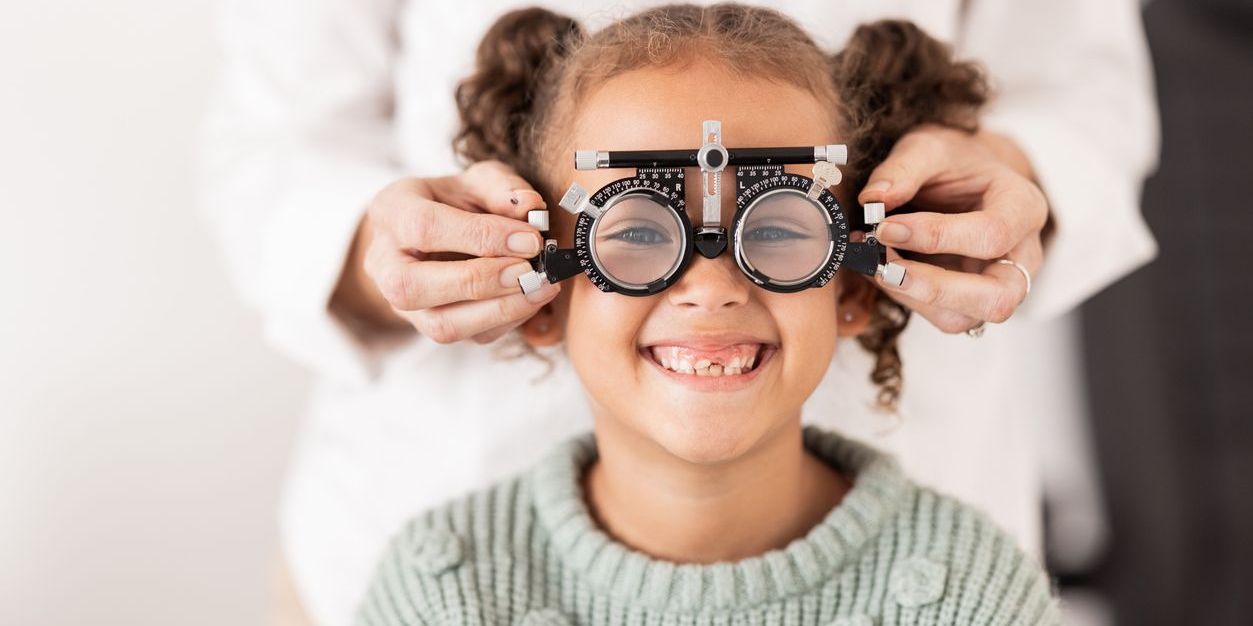What is a Pediatric Optometrist?
A pediatric optometrist is an eye doctor who focuses on caring for babies, children, and teenagers. While regular optometrists see patients of all ages, pediatric optometrists have extra training in how children’s vision develops and in spotting conditions that are more common in young patients. They also know how to use kid-friendly tools and techniques to make eye exams less stressful and easier to understand. On top of that, pediatric optometrists are skilled at working with children who may be shy, nervous, nonverbal, or who have special needs, making sure every child gets the care and attention they deserve.
What does a Pediatric Optometrist do?

Duties and Responsibilities
The duties and responsibilities of a pediatric optometrist center on protecting and improving children’s vision and overall eye health. Here are some of the key tasks involved in this role:
- Comprehensive Eye Exams: Perform thorough eye exams for infants, children, and teens to check vision clarity, eye alignment, and overall eye health. Exams are adapted to each child’s age and comfort level.
- Diagnosing Eye Conditions: Identify vision problems such as nearsightedness, farsightedness, astigmatism, and more complex issues like lazy eye (amblyopia) or crossed eyes (strabismus).
- Prescribing Glasses or Contact Lenses: Provide accurate prescriptions for glasses or contact lenses, ensuring they fit comfortably and suit the child’s needs and lifestyle.
- Vision Therapy: Recommend and guide vision therapy exercises or treatments when needed to improve eye coordination, focus, or tracking skills.
- Monitoring Development: Track how a child’s vision changes as they grow, making adjustments to treatment or prescriptions over time.
- Working with Special Needs Patients: Use specialized approaches to examine and care for children who may be nonverbal, anxious, or who have developmental or physical challenges.
- Parental Guidance: Educate parents about their child’s eye health, offering advice on eye safety, proper screen use, and signs that may indicate vision problems.
- Collaboration with Other Professionals: Work with pediatricians, teachers, and other healthcare providers when a child’s vision issues may affect learning or overall development.
Different Types of Pediatric Optometrists
While ‘pediatric optometrist’ is itself a specialization within optometry, many optometrists who focus on children develop sub-specializations, allowing them to tailor their care to specific age groups, conditions, or functional needs:
- General Pediatric Optometry – providing routine eye exams, prescribing glasses/contacts, and managing common childhood vision problems
- Pediatric Vision Therapy and Rehabilitation – focusing on treating binocular vision disorders (like convergence insufficiency), eye tracking, and focusing issues through structured visual training programs
- Neuro-Optometric Rehabilitation for Children – working with kids who have vision problems related to brain injury, concussion, or developmental conditions
- Low Vision and Special Populations – supporting children with visual impairment, genetic eye disorders, or systemic conditions such as albinism, cerebral palsy, or Down syndrome
- Myopia Control – specializing in slowing the progression of nearsightedness in children using methods such as orthokeratology (Ortho-K), special contact lenses, or atropine eye drops (in collaboration with ophthalmologists)
- Sports Vision for Children – helping young athletes improve eye-hand coordination, depth perception, and reaction time
- Infant and Early Childhood Optometry – focusing on early detection and management of vision problems in babies and toddlers, when cooperation during exams can be more challenging
Pediatric optometrists have distinct personalities. Think you might match up? Take the free career test to find out if pediatric optometrist is one of your top career matches. Take the free test now Learn more about the career test
What is the workplace of a Pediatric Optometrist like?
Pediatric optometrists can work in a variety of settings depending on their focus and patient population. Common employers include:
- Private Optometry Practices – either general practices that serve all ages or clinics dedicated specifically to children’s eye care
- Multispecialty Medical Clinics – working alongside pediatricians, ophthalmologists, and other healthcare providers
- Children’s Hospitals and Healthcare Systems – managing complex eye and vision conditions (e.g., premature birth, diabetes, neurological disorders) as part of a pediatric healthcare team
- Academic and Research Institutions – teaching optometry students or conducting research in pediatric vision science
- Public Health Programs and Community Clinics – providing vision screenings and care to underserved children
- Schools or Educational Services – consulting on vision-related learning issues, often in partnership with school systems or special education programs
- Specialty Rehabilitation Centers – supporting children with developmental delays, brain injuries, or vision-related learning difficulties
The workplace of a pediatric optometrist is usually a warm, child-friendly clinic designed to make kids feel safe and comfortable during their eye exams. In private practices or clinics, the exam rooms often have special tools made just for children — like picture eye charts instead of letters, fun handheld devices, and playful tests that work well for infants or kids who don’t talk yet. Bright colors, toys, and cheerful decorations are common too, helping to create a welcoming space.
No matter where they work, pediatric optometrists need patience, creativity, and great communication skills. Since many children may be shy, nervous, or unsure how to explain their vision problems, the optometrist’s job is to make the exam feel easy and even fun while still getting accurate results.
Frequently Asked Questions
Optometry and Ophthalmology-Related Careers and Degrees
Pediatric Optometrists are also known as:
Paediatric Optometrist
Children's Optometrist